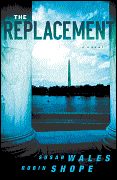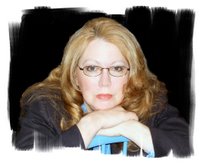When you enter the profession of writing, you enter a business world. You'll be called upon for interviews, book signings and public speaking. You'll want to give your very best in both appearance and carriage. For some writers the social aspect is easy. For others, it is nothing short of torture. But it doesn't have to be. Whether someone is fashion handicapped or just needs a coach to guide them through public speaking, there is help.
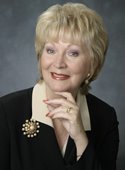 Meet Pat Durham from Diversity Unlimited. She's an image coach, who has assisted clients for over thirteen years with appearance, voice, presentation and social etiquette.
Meet Pat Durham from Diversity Unlimited. She's an image coach, who has assisted clients for over thirteen years with appearance, voice, presentation and social etiquette.
She has graciously agreed to be interviewed by Novel Journey.
To learn more about Diversity Unlimited [click here.]
To learn more about Ms. Durham [click here.]
Tell me a bit about what an image consultant does and why authors seek their help?
Well, an image consultant or an image coach is a person that helps someone discover their image. Image doesn't necessarily just involve the way someone looks. We all have an image, and it's made up of everything that has happened to us from the time of our birth until the present time. It can have to do with our ethnic background, our gender, our birth order, or any other number of things. An image coach will help a person discover who they are and how to relate to their audience.
Why would an author want my services? Well, an author, or anyone, has to have some knowledge that they could use some improvement. Perhaps there are areas in their life that are challenges. It can have to do with physical appearance. It can have to do with voice. It can have to do with body language, or just relating to the people around them. Perhaps they don’t have a good understanding about their personality and need to know how to relate to someone who has a different personality.
It sounds like you don't change their image, but rather you find who they are, and bring that to the fullest potential.
That is absolutely correct.
I like that description. When I prepared for this interview, it sounded like an image coach might come in and say "You need to change your hair, clothing, and talk this way," changing who the person was.
I tell people this all this time, I'm not trying to create another Pat Durham. The world has one and that's quite enough—thank you. What we want to do is find out the essence of who you are, and then together, we can bring that essence to its very fullest potential. I have worked with people who have come to me seeking help. I meet my clients where they are, and we start at the point where they feel they have a challenge, and we work at that. What I see happening is that they open up just like this wonderful flower. I see them just blossoming, and they start to ask me questions about other things. That's exciting because then we can start to work on the appearance, for instance, because that's the first thing that people see.
With photography, just like live interviews, you should first of all choose colors that are becoming to you. For instance, if you have a wonderful, white-haired lady, when that photographer photographs her, there should be a background that compliments the white hair, so she doesn't fade into the background.
Wear something that is very light, because the camera just can't make the adjustment, like the human eye can. Wear things that compliment skin tone and you feel comfortable in. No plaids. No checks. Cameras, especially digital cameras, have a very difficult time with them. No big prints. Bad! Keep it simple. Less is more. Keep the jewelry at a minimum. The jewelry should compliment the face.
I would always suggest—although I hate to say always—but an open collar is best. When you have a lot of stuff up around the face, you tend to appear closed off. It's like saying to people you can't come any closer. But if we have an open neckline, then that means we're approachable. We just see it that way.
Does an image coach help you choose the colors that compliment you?
Absolutely.
What about hair and makeup?
Yes. Hairstyle and makeup are very important. I would suggest if you are not comfortable with wearing makeup—as some women aren't, there's a whole generation that just lost the art of using makeup on a day-to-day basis—I suggest getting professional help.
When I do a complete makeover, whether it is an author or any profession, we look at color, the shape of the face, the neck. I have to take into consideration whether a woman is underweight, or overweight, whether she has lots of hair, or doesn’t have much. You want to make the most of all of that. It's so important. The camera . . . it just doesn’t lie. It just doesn’t. You have to create some illusions sometimes. For example, if a person has a very full face, as I do, I'm of German decent, I have to figure out how to make that face look less full.
Tell me about wardrobe.
Wardrobe is extremely important. People do judge us by what we wear. We are in a real pickle right now because we have a whole generation of people who have no clue as to what is appropriate to wear in certain situations. It's a problem. Women do not realize they need to think in terms of 'what are you selling' and they need to dress appropriately.
Speaking of what you're selling, what do you think about authors looking like their genre? For example, a suspense author, looking suspenseful? Or a romance author, looking very feminine.
[Continued next week]
 Meet Pat Durham from Diversity Unlimited. She's an image coach, who has assisted clients for over thirteen years with appearance, voice, presentation and social etiquette.
Meet Pat Durham from Diversity Unlimited. She's an image coach, who has assisted clients for over thirteen years with appearance, voice, presentation and social etiquette.She has graciously agreed to be interviewed by Novel Journey.
To learn more about Diversity Unlimited [click here.]
To learn more about Ms. Durham [click here.]
Tell me a bit about what an image consultant does and why authors seek their help?
Well, an image consultant or an image coach is a person that helps someone discover their image. Image doesn't necessarily just involve the way someone looks. We all have an image, and it's made up of everything that has happened to us from the time of our birth until the present time. It can have to do with our ethnic background, our gender, our birth order, or any other number of things. An image coach will help a person discover who they are and how to relate to their audience.
Why would an author want my services? Well, an author, or anyone, has to have some knowledge that they could use some improvement. Perhaps there are areas in their life that are challenges. It can have to do with physical appearance. It can have to do with voice. It can have to do with body language, or just relating to the people around them. Perhaps they don’t have a good understanding about their personality and need to know how to relate to someone who has a different personality.
It sounds like you don't change their image, but rather you find who they are, and bring that to the fullest potential.
That is absolutely correct.
I like that description. When I prepared for this interview, it sounded like an image coach might come in and say "You need to change your hair, clothing, and talk this way," changing who the person was.
I tell people this all this time, I'm not trying to create another Pat Durham. The world has one and that's quite enough—thank you. What we want to do is find out the essence of who you are, and then together, we can bring that essence to its very fullest potential. I have worked with people who have come to me seeking help. I meet my clients where they are, and we start at the point where they feel they have a challenge, and we work at that. What I see happening is that they open up just like this wonderful flower. I see them just blossoming, and they start to ask me questions about other things. That's exciting because then we can start to work on the appearance, for instance, because that's the first thing that people see.
We have six seconds to make an impression. It can be a good one. It can be a bad one. It can be one where no one remembers you at all. We have to make the most of those first six seconds.For authors, their reader's first impression will most likely be the author's photograph. What should they be concerned about with this?
With photography, just like live interviews, you should first of all choose colors that are becoming to you. For instance, if you have a wonderful, white-haired lady, when that photographer photographs her, there should be a background that compliments the white hair, so she doesn't fade into the background.
Wear something that is very light, because the camera just can't make the adjustment, like the human eye can. Wear things that compliment skin tone and you feel comfortable in. No plaids. No checks. Cameras, especially digital cameras, have a very difficult time with them. No big prints. Bad! Keep it simple. Less is more. Keep the jewelry at a minimum. The jewelry should compliment the face.
I would always suggest—although I hate to say always—but an open collar is best. When you have a lot of stuff up around the face, you tend to appear closed off. It's like saying to people you can't come any closer. But if we have an open neckline, then that means we're approachable. We just see it that way.
Does an image coach help you choose the colors that compliment you?
Absolutely.
What about hair and makeup?
Yes. Hairstyle and makeup are very important. I would suggest if you are not comfortable with wearing makeup—as some women aren't, there's a whole generation that just lost the art of using makeup on a day-to-day basis—I suggest getting professional help.
When I do a complete makeover, whether it is an author or any profession, we look at color, the shape of the face, the neck. I have to take into consideration whether a woman is underweight, or overweight, whether she has lots of hair, or doesn’t have much. You want to make the most of all of that. It's so important. The camera . . . it just doesn’t lie. It just doesn’t. You have to create some illusions sometimes. For example, if a person has a very full face, as I do, I'm of German decent, I have to figure out how to make that face look less full.
Tell me about wardrobe.
Wardrobe is extremely important. People do judge us by what we wear. We are in a real pickle right now because we have a whole generation of people who have no clue as to what is appropriate to wear in certain situations. It's a problem. Women do not realize they need to think in terms of 'what are you selling' and they need to dress appropriately.
Speaking of what you're selling, what do you think about authors looking like their genre? For example, a suspense author, looking suspenseful? Or a romance author, looking very feminine.
[Continued next week]




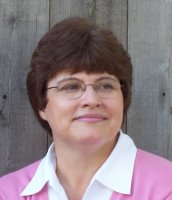
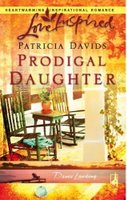
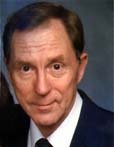




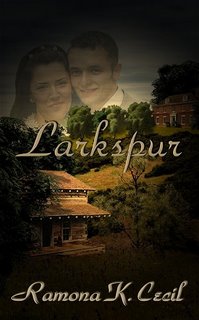 I’d like to tell you about my inspirational historical prairie romance, Larkspur, which will be coming out this November, 30th by Vintage Romance Publishing. The story, set in 1835 in a small, Indiana farming community I named Larkspur, was inspired by Conner Prairie, a living history museum near Indianapolis, Indiana. A young woman who’s lost all confidence in the medical elite of the time, practices and preaches Dr. Samuel Thomson’s botanical approach to healing. She has vowed, with God’s help, to save people from the harsh practitioners of conventional medicine. That vow becomes more resolute as well as more difficult to keep when a young doctor arrives fresh from the university and prepares to set up a medical practice in Larkspur.
I’d like to tell you about my inspirational historical prairie romance, Larkspur, which will be coming out this November, 30th by Vintage Romance Publishing. The story, set in 1835 in a small, Indiana farming community I named Larkspur, was inspired by Conner Prairie, a living history museum near Indianapolis, Indiana. A young woman who’s lost all confidence in the medical elite of the time, practices and preaches Dr. Samuel Thomson’s botanical approach to healing. She has vowed, with God’s help, to save people from the harsh practitioners of conventional medicine. That vow becomes more resolute as well as more difficult to keep when a young doctor arrives fresh from the university and prepares to set up a medical practice in Larkspur.



